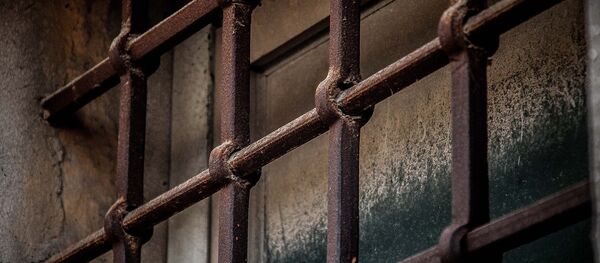Giving juveniles a life sentence without opportunity for release is a somewhat common practice in the United States these days. "According to data collected by Phillips Black, a nonprofit law firm, 84 percent of all JLWOP [juvenile life without parole] sentences given between June 2012 and May 2015 were given in just four states: Louisiana, California, Florida, and Michigan. While Florida and California had the highest numbers — 28 and 26 JLWOP sentences respectively — Louisiana (21) and Michigan (17) had the highest numbers per capita," reports the Intercept
This occurs despite the fact that sentencing juveniles to life without parole has effectively been banned as of 2012. In the Miller v. Alabama ruling of that year, Justice Elena Kagan wrote that given "children's diminished culpability and heightened capacity for change," life without parole sentences for minors should be "uncommon."
"Uncommon" means that the ban is not total, as judges can still use this punishment in exceptional cases, "as long as mitigating factors — the child's age, home environment, extent of participation in the crime, and potential for rehabilitation — are considered," wrote The Intercept.
The Miller ruling has been amended by Montgomery v. Louisiana case that led to the decision that the Miller ruling is retroactive, and can be applied to those sentenced prior to 2012. However, although it's been almost four years, some judges, prosecutors, and even public defenders don't know about Miller. So they still give life without parole sentences, mostly because they are used to it.
The practice of sentencing children to life without parole stems from the 1990s when the term "superpredator" was coined by political scientist John DiIulio. Superpredators were understood as young people who repeatedly committed violent crimes as a result of being raised without morals. This mainly applied to black children, who Dilulio, media and politicians framed as being shameless criminals "running wild, terrorizing law-abiding citizens," wrote The Intercept.
Hillary Clinton famously stated in 1996 that these "superpredator" children have "no conscience, no empathy; we can talk about why they ended up that way, but first we have to bring them to heel." As child crime decreased significantly in the early 2000's, the concept was debunked, which made Clinton apologize for this comment in 2016.
However, only 28 states reportedly abolished juvenile life without parole after the 2012 Miller ruling. The rest continue to apply this sentence to some degree.
Advocates of this punishment include both families of homicide victims, many of whom prefer the murderous prisoners to be locked up forever, and judges. The latter prefer to lock up murderers for good as well, regardless of age, and justify their rulings by saying that they wish to protect lawful people. Judges don't seem to understand juveniles' heightened ability to rehabilitate and change, which lies at the base of Miller ruling, into account.




